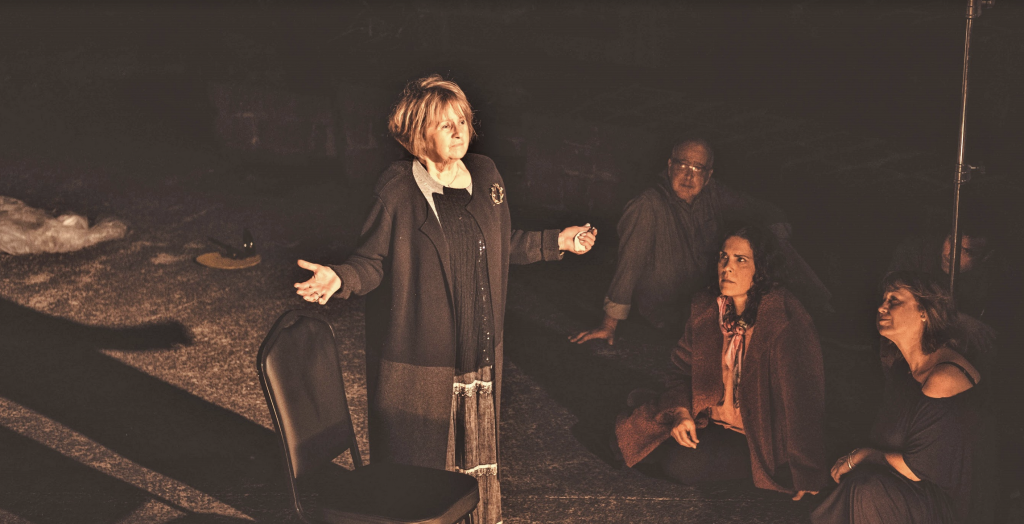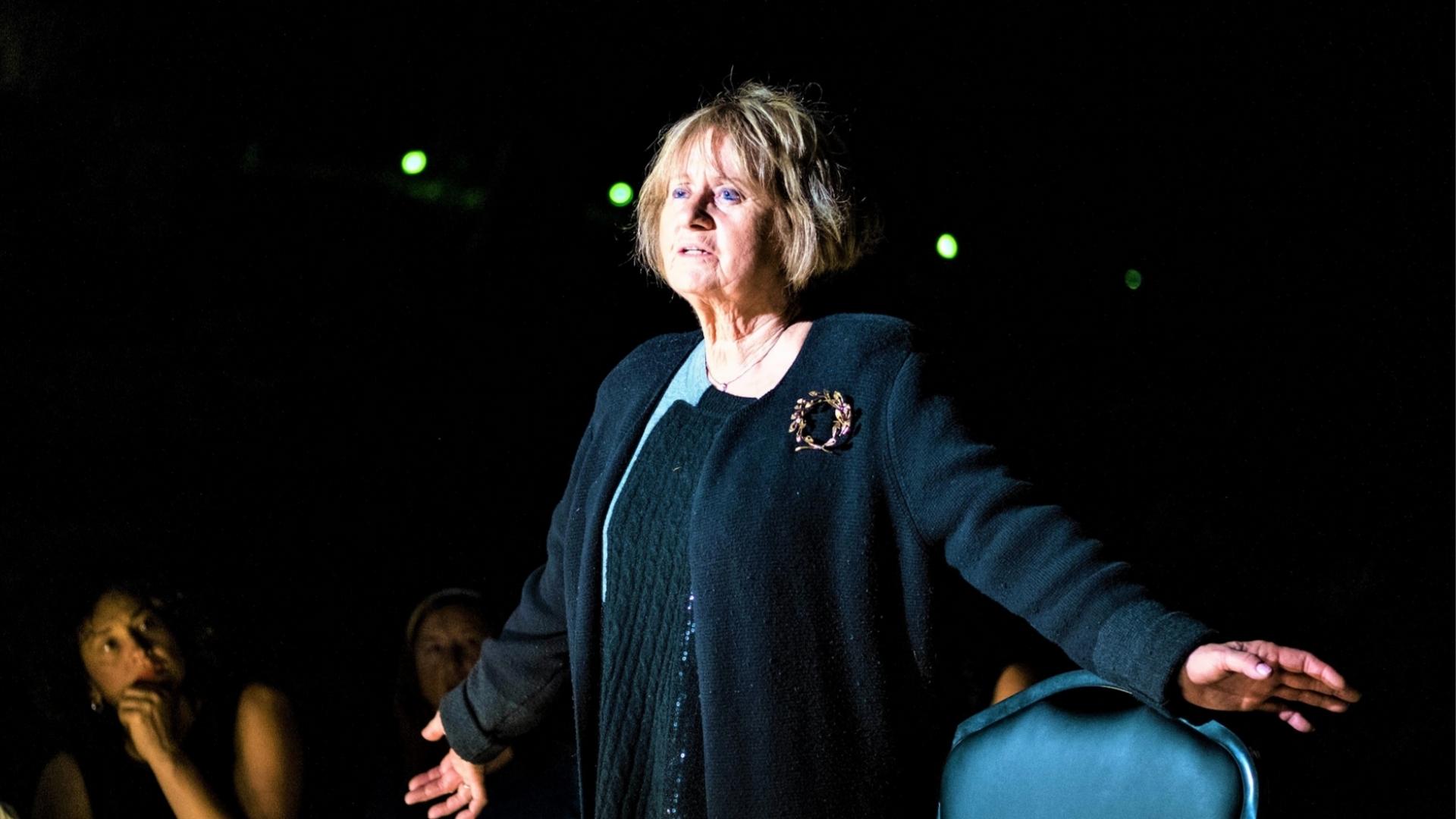“My role is a small part of ‘The Moonlight Sonata’ by my beloved poet and writer Yannis Ritsos,” says Lemonia Shoina about her participation in the third instalment of Greek Community of Melbourne’s Creative Drama and Arts Theatre performance, titled ‘MόNοι’ (Alone).
Based on a compilation of monologues and poems from Greek and global authors, “MόNοι” is adapted for the stage by Australian born director of Greek background Jeremy Artis and is centered around the idea of belonging.
“When I initially performed in February, I enjoyed every moment of it. It was like coming out of the chaos that COVID-19 created. It really felt good,” says Shoina, a non-professional actress and only first generation Greek Australian participating in the play.

The pre presentation of the creative drama, held in February, was the first event that took place at the Fairfield Amphitheatre since it was granted Heritage Protection status and the community response was overwhelming.
But this was only a reflection of the good atmosphere backstage, between the tight-knit cast of 10 and GCM’s coordinator Katerina Poutachidou – all braving the challenges brought-on by the pandemic in order to make art.
“All theatre stage productions by Creative Drama & Arts (GCM) are deed and meaningful and they have opened new horizons in my life. Now, I observe simple things and situations in my daily routine, from a different, critical, clearer view and perspective,” says Shoina.
“I am a very optimistic person. If there is a wall painted black, and there is a small white dot, I will follow that white dot, unconditionally and unreservedly.”
Asked to share a message with the audience Shoina says that although the arts should be an important part of the Australian lifestyle “festivals and theatre plays are great, but they are not always of good quality”.
“This play is like discovering a new meaning in life,” she says.
One more question comes to mind before we wrap up;
-I know you spend time every year in Greece. Do you feel like you belong in Greece or in Australia?
“I love both countries. The old one and the new one. They both have treated me well,” Shoina replies.
*Don’t miss the performance ‘ΜόNοι’ on Sunday, 24 July, on the mezzanine floor of the Greek Centre. Click here for more information and tickets.

